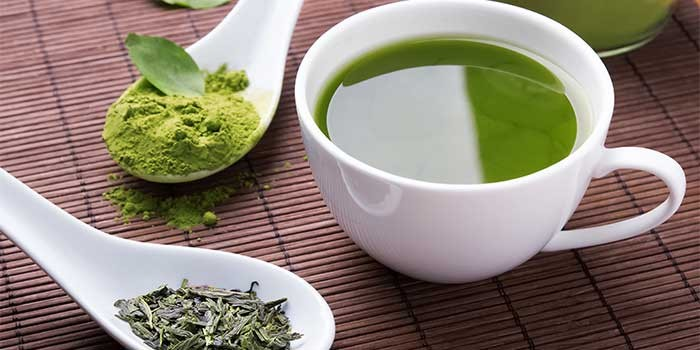Did you know that green tea is considered a superfood? According to a report from the International Institute of Sustainable Development, tea is the second most consumed beverage in the world, after water; Green tea is one of the most commonly consumed teas in the world. Green tea originated in China, and since then its production and manufacture has spread to other countries in East and Southeast Asia. It is also heavily consumed in Africa.
Green tea is made from unoxidized leaves and is one of the least processed types of tea. For this reason, it contains the most antioxidants and beneficial polyphenols and touted to be one of the healthiest beverages on the planet.
Check out some of these benefits of Green tea below.
Improved brain function
Green tea does more than just keep you alert, it may also help boost brain function. The key active ingredient is caffeine, which is a known stimulant. It doesn’t contain as much as coffee, but enough to produce a response without causing the jittery effects associated with taking in too much caffeine.
Increases fat burning
If you look at the ingredients list for any fat burning supplement, chances are, green tea will be on there. This is because, according to research, green tea can improve fat loss and boost metabolic rate.
Lowers the risk of some cancers
In countries where green tea consumption is high, some cancer rates tend to be lower. Green tea is an excellent source of powerful antioxidants which protect against oxidative damages that could lead to cancer. Cells naturally accumulate oxidative damage during regular cell metabolism. A class of molecules called antioxidants can prevent or even reverse that damage. One of the most powerful antioxidants is called epigallocatechin gallate, and it is found in high levels in green tea. Epigallocatechin gallate has been shown to reduce the growth of breast and prostate tumors
Reduces bad breath
The mouth is a breeding ground for bacteria. Green tea has natural antibiotic and antifungal properties. In fact, growing evidence suggests that drinking green tea could protect against cavities and bad breath. Green tea contains catechins which inhibit the growth of bacteria that causes cavities and tooth decay. So taking green tea may impact your oral health positively.
Green Tea is Associated with Lower Heart Disease Risk
Green tea may also be good for your heart. In a study of 40,530 Japanese individuals over seven years, drinking three to four cups of green tea per day was associated with a 31% lower risk of dying of cardiovascular disease. Separate reviews also found that the polyphenols in green tea may lower blood pressure, decrease inflammation, and improve epithelial function, which can help reduce heart disease risk in people with excess weight or obesity.
Green Tea Balances Your Ratio of Good and Bad Cholesterol
Not all cholesterol is bad for you. Low-density lipoprotein (LDL) cholesterol is associated with cardiovascular risk – heart problems, while high-density lipoprotein (HDL) cholesterol could actually protect you against heart disease. Although the exact mechanisms of this effect are unknown, the phytonutrients in green tea appear to be connected to balanced LDL and HDL cholesterol levels, helping to keep them in a healthy range.
Helps Improve the Liver
The catechins in green tea extract may also help reduce inflammation caused by some liver diseases, such as nonalcoholic fatty liver disease (NAFLD). One study gave 80 participants with NAFLD either 500 mg of green tea extract or a placebo daily for 90 days. The green tea extract group showed significant reductions in liver enzyme levels, which is an indication of improved liver health.
